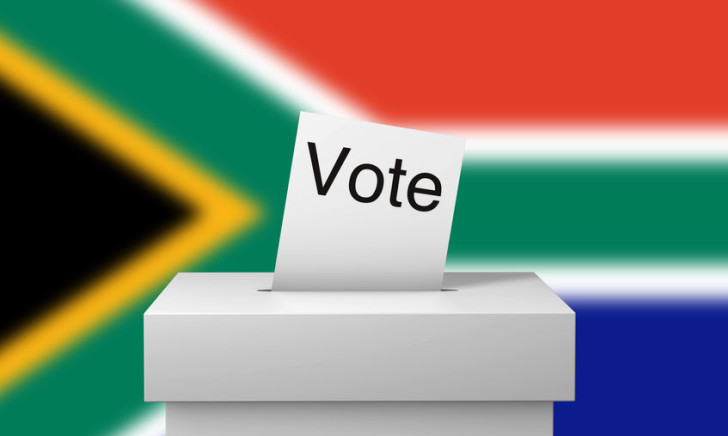HEIBERG ESTATES NEWSLETTER: APRIL 2024

Dear Property Partners
In the bigger picture and on the long run our SA Property Market although cyclical, has always been resilient. Even with strong headwinds facing it on many fronts, it has always demonstrated steady capital growth. Awaiting the elections at the end of May and with growing concerns surrounding it, the next month or two will indeed be of the utmost importance in re-shaping the future. Especially looking at our fragile property market for some time now where investors have increasingly adopted a wait-and-see attitude on property investment decisions – pending the 29 May election and the outcome thereof.It is widely expected that the ANC could lose its majority control for the first time since 1994, but it is unlikely that with so many other opposing political parties, that another party will be able to secure a majority vote by itself. Looking at various opinion poll results, a coalition government is expected to take center stage at the national level as well as in the major provinces. Many potential property investors are playing it safe to see what the final composition of such a coalition government will be. The impact of the uncertainties surrounding the election and aftermath thereof, is also expected to most likely further deteriorate the already very sensitive rand exchange rate which in turn will also have a ripple effect throughout our economy, our inflation rate and also our property market.
Uncertainties for a prolonged time and over a broad front, have already been filtering throughout every sector of our SA Property Market, further also to note the declining economic growth rate where GDP numbers for 2023, showed a mere 0.6% growth. The average yearly economic growth rate since 2012 showed an alarmingly low 0.8%, and no wonder that with the increasing unemployment rate and people’s declining ability to buy properties, the negative impact thereof is tangible. Downwards pressure on our property market is further being caused by our continued high interest rate since May 2023, with no cuts expected in the immediate future anymore and the prime rate expected to remain on 11.75% for the foreseeable future, whilst our continued higher-than-expected inflation rate, is again expected to increase with the latest fuel and electricity price hikes.
An indication of how much our property market is under downward pressure is illustrated by the fact that property tax contributions in comparison to our previous financial year, have declined by 8.6% – R1.8 billion less into the already empty state coffers. We should also note that wider problems surrounding load shedding in all property sectors as well as growing demand for reliable utilities and sustainable fundamental Municipal services, are getting more and more important for prospective property investors. We all are well aware that sustainability is rather questionable and going backwards.
Looking at property demand versus property supply, there is a shift that goes hand-in-hand with the above and in general taking all relevant factors into account, supply has been exceeding demand for some time now, putting downward pressure on all property sectors that do not only impact on both selling- as well as rental prices, but also on the time that the property remains to be on the market before being sold or rented. The fact that the square meterage of all commercial plans passed for the 12 months to January 2024 declined noticeably as reported by a recent FNB report, underlines the increasing pressure on all sectors of our Commercial Sector. In comparison to the recent state of affairs, the Industrial Sector recorded -28% lower new building plan approval since the multi-year high recorded for the 12 months to November 2018, the Retail Sector -45% lower for the same period, whilst the Office Sector -66,7% lower than the multi-year high reached for the12 months to June 2017.
Some more of the latest interesting property-related facts and statistics:
- The impact of continued high interest rates, is especially visible amongst first-time buyers as illustrated by declining bond applications with -44.6% recorded in February – the lowest level recorded since March 2017. This is a clear indication that first-time Buyers are delaying their property purchases until interest rate cuts – that at this stage is not expected to happen soon.
- Sale volumes have declined substantially since the middle of last year, whilst price growth has stalled to under 1% and the Buyers market is expected to continue for some time to come.
- Relocation or semi-gration-related sales are still elevated where it increased from 11% in the last quarter last year, to 13% in the first quarter of this year.
- The whole culture of traditional corporate office parks has changed with COVID-19 and four years after the beginning of COVID-19, only 53% of office workers have returned back full-time and are at their desks five days a week. Interesting to note that 33% of workers spend between two and four days at their desks whilst 14% only visit their offices once a week. Worldwide research by Owl Labs shows that 62% of workers work in a hybrid manner and only 22% are permanently back at their offices.
- It is also clear that our Construction Industry has not recovered since COVID-19. Dr Roelof Botha points out in a recent Construction Industry overview, that although the Afrimat-Index in the construction industry in the last quarter of 2023 in real terms increased by 3% in comparison to the same quarter in the previous year, the index value was still 16% lower than its highest recorded level as noted during the third quarter of 2016. Furthermore, alarmingly the value of approved new building plans in the country’s bigger municipalities, declined by 26%. The negative impact of our continued high prime rate which is 18% higher than at the beginning of 2020, is clearly demonstrated as such.
- StatsSA reports a weakening in new developments where new mortgage loans granted for vacant land declined significantly by -23.7% year-on-year, not only due to a lack of investors trust, but also due to a lack of availability of bulk services and the gradual deterioration of sustainable municipal services across the country.
- Henley and Partners in their Africa Wealth Report of 2024, has given Cape Town the honour to officially be acknowledged as the city with the most expensive properties on the African Continent where prime residential properties average a price of around R112 000/m². South Africa has 5 cities amongst the most 10 expensive cities in Africa, including Plettenberg Bay at R48 000/m², Hermanus at R46 000/m², Umhlanga at R40 000/m² and Sandton at R36 000/m².
- The Commercial Property Sector still shows an overall further decline in sale volumes where a recent FNB Commercial Property overview report, states that the year-on-year decline in the value of new mortgage loans granted, is still the trend although with a smaller margin. They state that from a previous quarter’s negative rate of -13.7% year-on-year, the value of new mortgage loans granted during the last quarter of 2023 was a much lower decline of -1.71% – so in effect strengthening.
- FNB further also reports a parallel scenario regarding the Residential Property Sector where the growth in value of new residential mortgage loans granted continued to decline by -10.16% year-on-year as recorded during the last quarter of last year – which was a noticeably diminished rate from the prior quarter’s -22.84% – so in effect also strengthening.
Our fragile SA Property Market seriously needs a series of interest rate reductions rather sooner than later. At least there is a sliver of hope with the latest announcement that inflation has been recorded at a lower 5.3% for March. The SA Reserve Bank’s next announcement re. whether they are again going to leave the existing interest rates as is or not, is urgently being awaited on the 30th May 2024. Logically our economic- and political state of affairs are two key points that drive property demand and performance. As mentioned, various opinion polls point to the fact that it is unlikely that one political party will reach a 50% vote percentage, leading to unchartered waters into a new era of a coalition government. Hopefully, with a peaceful election outcome and the fact that it is likely that interest rates have peaked now, we hope to see declining interest rates sometime over the next few months. This should at least lead to increased demand as well as sales activities.
We wish you just the very best and a happy voting day as the future is in the hands of our rainbow nation to ensure that our future and those of our loved ones, is secure in hopefully a soon-to-be-elected new and responsible government.
Our Heiberg Estates Team remains to be on 24/7 standby to address any property-related needs you might have – don’t hesitate to contact us anytime. Kindly scan the QR-code below to visit our website:

Sincerely
Bambie & Heiberg Estates Team




